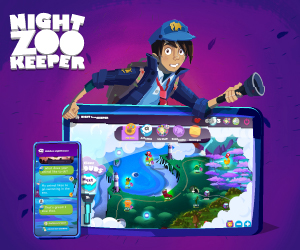How mindfulness will make you a better boss – and bring company success

Did you know that as little as 15% of people across the world feel engaged in their job? That’s according to data from Gallup. And thus, not being happy and satisfied at work equals not being productive at work. Which, of course, in turn, can impact a company’s success.
Massive organisations – such as Google, Netflix, and the UN – are trying to tackle this issue by investing in management training programmes to teach their next generation of leaders the softer skills that will strengthen company culture.
Because, more than ever, self-awareness and empathy are valuable traits in a good leader – being self-interested and thinking from the top down is for workplace dinosaurs. A culture of collaboration gives employees the chance to live up to their creative potential, helping them feel safe to take risks and bring about innovation.
Human-centered leadership
Think of a manager, mentor or co-worker who has had a meaningful impact on your career. Now think of their personality traits and how they supported your growth. Perhaps you appreciated their ability to inspire and motivate, how they promoted teamwork, communicated powerfully or listened attentively and displayed integrity?
In the leadership world, these individuals are known as human-centered leaders, due to their ability to empathise with employees, partners or customers by understanding their needs and truly caring about presenting solutions. They are not necessarily people pleasers. Their sincere motivation is to see you, and the business, flourish.
This is a much more powerful trait than simply being ‘nice’. A thoughtful way of being, human-centred leaders influence and inspire their team to go beyond the extra mile.
Improvement at every level of an organisation starts with self-development and the good news is that we can all develop our ability to become human-centred leaders whatever our job title, field of work or specialisation.
The reason cutting-edge companies are offering this intrapersonal based training is that most of us do not learn how to manage ourselves at school or university. So how can we be expected to manage others?
Mindfulness in the workplace
This is where mindfulness comes in, teaching us how to observe our thoughts, emotions, and feelings so we can understand ourselves and transform our behaviour. These contemplative practices train our minds to be stable, to focus our attention more efficiently and remain calm at challenging times.
According to Bill George, a professor of Management Practice at Harvard Business School, “the main business case for meditation is that if you are fully present on the job, you will be more effective. As a leader, you will make better decisions, and you will work better with other people”.
Think of this logical system of practices as a set of tools that enhances your ability to think clearly, decreases stress and reminds you how to act in a more human manner. This is key for human-centred leaders – any sceptical leaders out there preferring to leave mental training out of their agenda are missing a major competitive advantage.
SAP, one of the most successful software companies, with over 400,000 customers globally, has employee well-being as key to their business strategy, implementing a series of physical and mental health initiatives that have been strongly linked to the company’s incredible financial success. The wellbeing efforts improved its Business Health Culture Index from 69 percent in 2013 to 78 percent in 2018, with each incremental 1 percent change on the index leading to approximately $100 Million on its operating profit.
Peter Bostelmann, SAP’s director of global mindfulness practice, shares in his TEDx talk how meditation has enhanced his own ability to work under pressure and how a two-day neuroscience, emotional intelligence, and mindfulness-based programme called Search Inside Yourself (SIY) has increased employee engagement and delivered a return on investment of over 200 percent.
How do I become more mindful?
Practicing mindfulness is simple and can be undertaken at any time. All we need to do is to have something to anchor our full attention to what is happening right here, right now. One of the ways we do this is by simply bringing our attention to our breath.
This two-minute audio guided meditation is a great resource to have at any moment you need to bring your body and mind to the present.
Once you’ve perfected the art of pausing, you realise how these precious seconds of peace give you perspective, and how powerful this simple practice can be.
We all know that a cluttered mind has no space for deep thinking, therefore once the mind is quiet and calm we are able to reflect on the impact we have on others.
Here are three key questions for human-centred leaders to always hold dear:
- How can I be a better listener?
- How can I make team members feel they can take risks and be vulnerable in front of others?
- How can I show my team members that their work matters and creates change?
Co-Founder of Form / Founder of Switch-OM
Natalia Bojanic is a former PR director who left the corporate world to follow her passion for self-improvement and wellness.
Alongside running and expanding the disruptive startup, Form, she is also a qualified meditation teacher who has studied with Buddhist monks and nuns, and been certified by the Google-developed Search Inside Yourself Leadership Institute.














